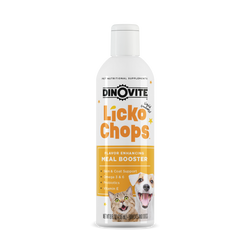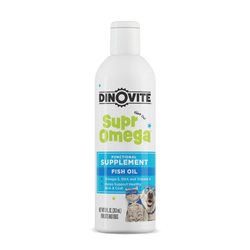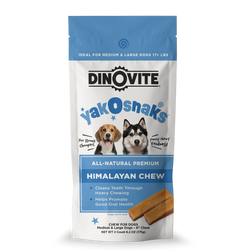The Itch Factor: Why Dogs Scratch and What It Means

Why Is My Dog Continually Scratching?
Dogs scratching now and then is usually considered normal, but if your furry friend seems to be scratching constantly, it may indicate an underlying issue that needs attention. From dry skin to allergies, understanding why dogs scratch can help you provide the relief they need.
Let’s explore the common causes of itching in dogs, along with practical solutions to stop the scratching and keep your pup comfortable and healthy.
Why Do Dogs Scratch Their Body?
There are several reasons your dog might be scratching excessively, ranging from external irritants like fleas and ticks to internal issues such as nutritional deficiencies or allergies. Here are some of the most common causes of dog scratching:
1. Dry Skin on Dogs.
- Dry, flaky skin is a common cause of itching, especially during colder months when indoor heating zaps moisture from the air. Dogs with dry skin may scratch persistently, and you might notice dandruff-like flakes on their coat.
- Solution: Regular grooming and the addition of skin and coat supplements rich in omega fatty acids can help hydrate your dog’s skin and reduce irritation.
2. Fleas and Ticks
- Parasites like fleas and ticks are one of the most frequent culprits of dog scratching. Flea bites can cause intense itching and even allergic reactions, known as flea allergy dermatitis.
-
Solution: Regular flea and tick prevention is essential. Flea and tick products effectively kill fleas, prevent infestations, and protect against ticks that may transmit diseases like Lyme disease.
3. Allergies
Dogs can develop allergies to a variety of things, including:
- Food: Certain ingredients in dog food may trigger allergic reactions.
-
Environmental factors: Pollen, dust mites, and molds are common culprits.
Grooming products: Harsh shampoos or sprays can irritate your dog’s sensitive skin. - Signs of allergies include redness, inflammation, hot spots and excessive scratching.
- Solution: Switching to hypoallergenic diets, using gentle grooming products, and especially consulting your veterinarian can help address allergy-related itching.
4. Nutritional Deficiencies
- A poor diet lacking in essential nutrients can lead to dry, crusty skin, excessive shedding, and sores, all of which can make your dog scratch incessantly. Dogs thrive on a balanced diet and need proper omega fatty acids, vitamins, and minerals for healthy skin and coat.
-
Solution: Ensure your dog’s diet is high-quality and meat-based, avoiding fillers like carbs, grains, and starches. Adding food supplements like Dinovite can help provide the nutrients needed to tackle itching, paw licking, and seasonal allergies.
5. Skin Infections
- Bacterial and fungal infections, especially in moist areas like skin folds, can cause itching, redness, and discomfort. These infections may require veterinary treatment if left untreated.
-
Solution: Regular cleaning of your dog’s skin and seeking veterinary attention if signs of infection, such as swelling or discharge, are present.
6. Anxiety or Stress
- Excessive scratching can be a sign of anxiety or stress, especially in dogs experiencing separation anxiety or environmental changes. This behavior is often a coping mechanism for their stress.
-
Solution: Products like Beneboost Calming Liquid may be able to help reduce stress in dogs and destructive behaviors while promoting emotional balance. Additionally, providing a consistent routine and reassurance can help calm your pet.
7. Boredom
- Sometimes, dogs scratch out of boredom or habit, especially high-energy breeds. Lack of mental and physical stimulation can lead to compulsive behaviors like scratching.
-
Solution: Keep your dog entertained with toys and activities. YakOSnaks, long-lasting cheese chews, are an excellent option for mental stimulation and good dental health.
8. Medical Conditions
- Persistent scratching may be a symptom of underlying medical conditions, such as hormonal imbalances or autoimmune disorders.
-
Solution: If the cause of your dog’s itching isn’t apparent, consult your veterinarian to rule out any serious health concerns.
How Do I Stop My Dog from Itching?
Stopping your dog’s itching involves identifying the cause and taking appropriate steps to address it. Here’s a simple checklist to review with your vet:
- Check for parasites: Groom your dog regularly and use flea and tick preventatives.
- Improve their diet: Switch to high-quality, meat-based food and consider adding supplements like Dinovite for additional nutrients.
- Keep them entertained: Introduce toys, chews, and activities to reduce boredom.
- Treat allergies: Identify and avoid triggers, and consult your vet if symptoms persist.
- Address stress: Use calming products and maintain a consistent routine to ease anxiety.
- Hydrate their skin: Use skin and coat supplements with omega fatty acids to combat dryness.
%20(1).png)
Need Advice on How to Treat Your Dog’s Dry, Flaky Skin?
Dry skin is a common problem in dogs, but it’s manageable with the right care. Incorporating regular grooming, dietary adjustments, and hydration-focused supplements can make a world of difference for your pup.
If you’re unsure about what’s causing your dog’s scratching or need personalized advice, our team is here to help! Please contact Customer Support here .
*All information is for educational purposes only and is not intended to replace the expert advice of a veterinarian.
Related Products



